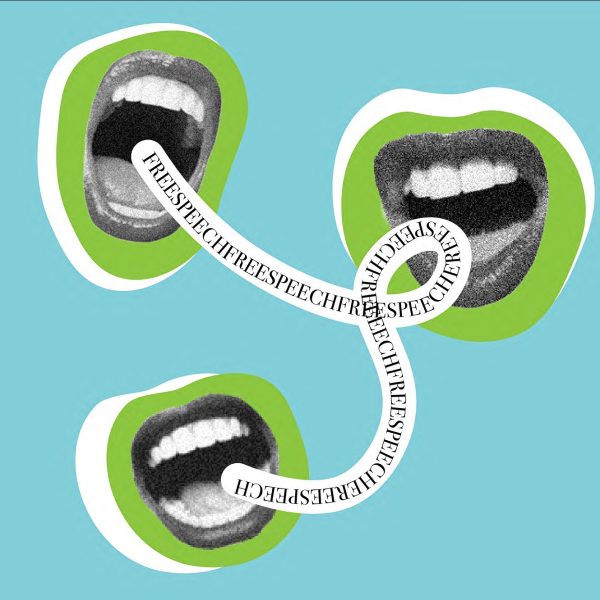
Students do not shed their rights at the schoolhouse gates.
At least, that’s the standard upholding freedom of speech and expression in U.S. public schools. The Supreme Court established the precedent in the 1969 case Tinker v. Des Moines. The case extended the rights of the First Amendment to students in schools because the school administrators acted as a proxy for the U.S. government. It has been upheld ever since.
Students attending state-funded high schools across the country have Tinker and decades more of constitutional interpretation to fall back on when they express themselves. Administrators have a wealth of knowledge to rely upon when they discipline students. This even extends to public universities.
Unfortunately for students that attend private colleges, an already complex legal topic becomes even more blurry. Officials of private universities aren’t held to the same standards because they aren’t agents of the government. Private universities typically write and enforce their own speech codes.
Elite private universities sell themselves as intellectual powerhouses, but they still struggle with the foundational concept behind intellectual thought: freedom of expression. Private universities have been under fire since the Oct. 7 attack on Israel for the chaos on their campuses. The situation is sticky. It’s so sticky that the presidents of three of our nation’s finest institutions — Harvard University, University of Pennsylvania and Massachusetts Institute of Technology — found themselves tongue-tied before Congress when questioned about how they are handling tense on-campus situations. The line between harassment and expression is unclear, even to the most esteemed academics.
Tulane University has a clear commitment to the freedom of expression outlined in its 2023 philosophy. However, as the congressional hearings of university presidents showed, institutional policy may not be enough to root out bias.
Tulane is not immune to the fallacies of other private institutions and is also being tested on its free speech boundaries. Tulane has shown up in the news again and again with freedom of speech at the center of the story. Systems of legal interpretation and justice shield public universities from the conflict. The difference between the marketplace of ideas in public and private universities lies in the methods of recourse available to students and staff alike.
Public universities are expected to uphold the First Amendment, as defined by the Constitution and interpreted for centuries by the courts, when they commit to free speech. Thus, when a public institution engages in questionable discipline of students concerning expression, their students can turn to the courts for restitution. Private universities, like Tulane, Harvard and Penn, are expected only to keep their promises to students. Administrations are capable of interpreting violations of their own rules, regardless of the impression on community members or any perceived discrepancies between academic integrity and the safety of the campus environment. That’s a much harder case for a censored student to win.
The standard set forth in Tinker v. Des Moines established that students retain their rights at public schools, but it didn’t shoot down all administrative authority to regulate speech. Public school students are still disciplined for speech that “materially and substantially interferes” with school operation. Student speech would otherwise be protected unless the instance escalates, legally, to that of harassment or a hate crime.
By voluntarily deciding to uphold the First Amendment, Tulane administrators would be moving to embrace decades of evaluative standards set forth by U.S. courts. This, rather than a self-defined philosophy for freedom of expression, would have benefits for both the community and the administration. Students would have a clearer picture of what will be allowed and disallowed. Administrators would have a path for discipline that puts up extra guardrails against biased decisions. Grievances can be brought to court if a decision appears biased. The community would be more educated on their civil rights overall.
Now more than ever, it is critical for young intellectuals to engage in civil discourse. Speech and conduct codes are subject to bias and manipulation during a time so charged for our community. The Constitution and its interpretation are imperfect, but something must be done in order to protect the core values of education throughout the chaos. Bias in free speech interpretation impedes free academic thought. A reformed free speech policy is the first step forward.






















Leave a Comment